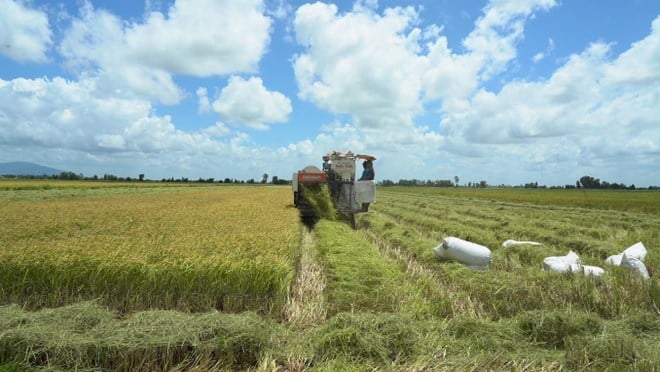
Businesses suffer losses after rice export halo
According to Lao Dong's research, although rice export turnover reached a record of over 8.1 million tons, bringing in nearly 4.8 billion USD, an increase of 38.4% over the same period in 2022, many businesses are facing the paradox that the more they export, the more they lose.
Sharing with Lao Dong, Mr. Ly Thai Hung - Director of Hung Cuc Company Limited said that although exports are large, many businesses are losing money because when signing contracts, the price is low, but when purchasing and processing, the price has increased.
Mr. Nguyen Quang Hoa - Director of Duong Vu Rice also did not hide: Rice export reached a record in the past 30 years, but because rice prices increased too much, many businesses did not make a profit. Even many businesses that suffered losses still had to "bite the bullet" to fulfill contracts to maintain their reputation with customers, to maintain factory operations...
“Normally, businesses must sign an export contract before the bank can consider and provide credit. Once they have borrowed money, the price of rice has increased far beyond the signed price. Some businesses signed a contract when the price of rice was at 530 USD/ton, but when they went to buy, the price had increased to 540 USD; signed at 540 USD, but when they bought, the price of rice had increased to 550-560 USD/ton. They keep signing like that and incur losses. If they want to lose less, they have to buy very quickly, for example, 10 tons of rice must be collected in 2-3 days instead of a week, because the price of rice could increase by tens of USD next week. Therefore, businesses are worried when the price of exported rice increases, not happy as many people mistakenly think,” Mr. Nguyen Quang Hoa explained.
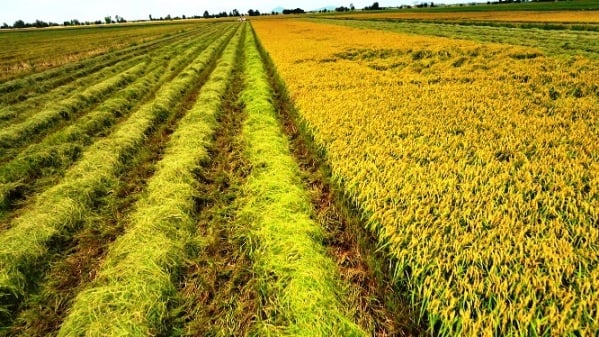
Don't "blame" traders and rice brokers
According to a representative of a Thai Binh rice processing and exporting enterprise (who requested not to be named), households purchasing rice at the intermediary stage have caused the purchase price of rice to increase, increasing the difficulties of the enterprise.
“Small-scale purchasing households have raised prices and are “contributing” to breaking contracts with businesses, especially businesses that purchase products,” said the representative of this business.
However, Mr. Nguyen Quang Hoa - CEO of Duong Vu Rice has the opposite opinion, saying that it is the rice brokers and traders who contribute to increasing income for rice farmers.
“A field that is about to ripen will have dozens of rice brokers “looking at” and competing. Only the rice brokers know which fields are about to ripen and which enterprise will pay the highest price to buy rice to connect farmers with buyers. Because there are many buyers competing with each other, every “broker” will try to pay the highest price to win the relationship. Every purchasing enterprise will try to pay an attractive price to connect the rice broker with the seller. This helps farmers sell at a high price,” Mr. Hoa emphasized.
According to GLE CEO Vu Tuan Anh, the whole country has 250 enterprises licensed by the Ministry of Industry and Trade to export rice, but only about 40-50% of enterprises are competitive enough to export, the rest either apply for licenses and then leave them there, or act as satellites to collect rice for the "top" rice exporting enterprises. These enterprises also compete with each other, so rice farmers are benefiting.
“This competition helps farmers sell at high prices and make a profit from rice cultivation. Therefore, we should not give traders and rice brokers a bad reputation, saying that they “disrupt” market prices,” Mr. Vu Tuan Anh analyzed.
Source


![[Photo] General Secretary To Lam arrives in Minsk, begins state visit to Belarus](https://vphoto.vietnam.vn/thumb/1200x675/vietnam/resource/IMAGE/2025/5/11/76602f587468437f8b5b7104495f444d)




![[Photo] General Secretary To Lam meets and expresses gratitude to Vietnam's Belarusian friends](https://vphoto.vietnam.vn/thumb/1200x675/vietnam/resource/IMAGE/2025/5/11/c515ee2054c54a87aa8a7cb520f2fa6e)






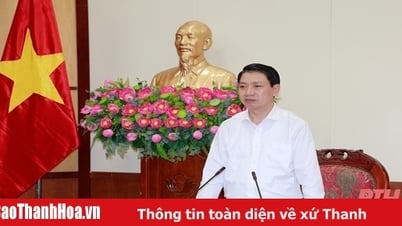








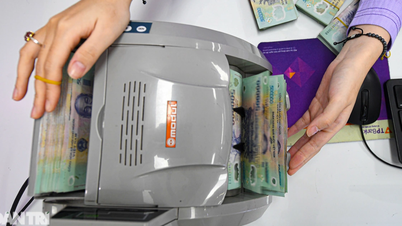
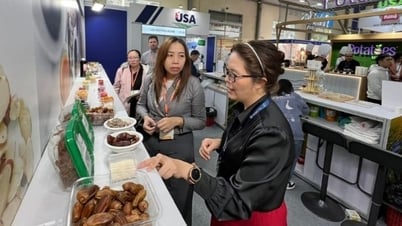








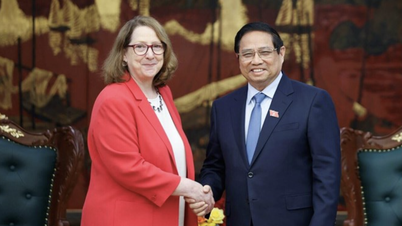
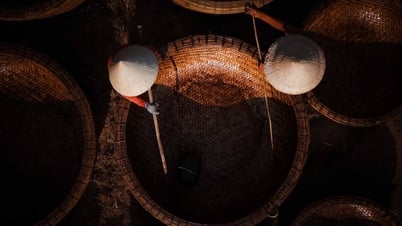

![[Photo] General Secretary To Lam concludes visit to Russia, departs for Belarus](https://vphoto.vietnam.vn/thumb/1200x675/vietnam/resource/IMAGE/2025/5/11/0acf1081a95e4b1d9886c67fdafd95ed)




























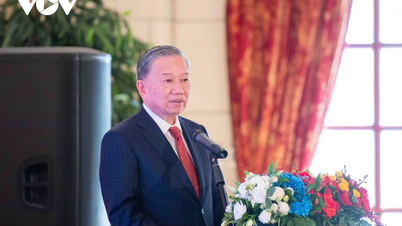

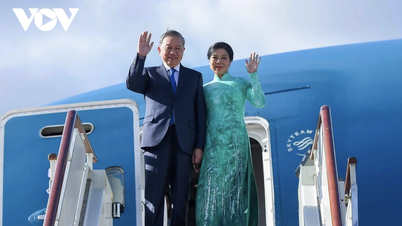
















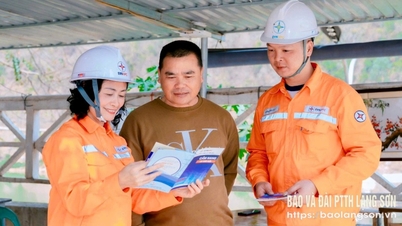







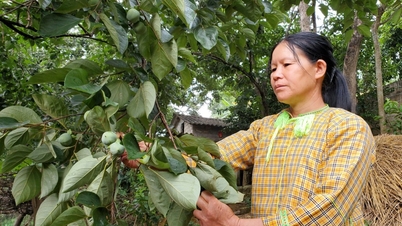










Comment (0)